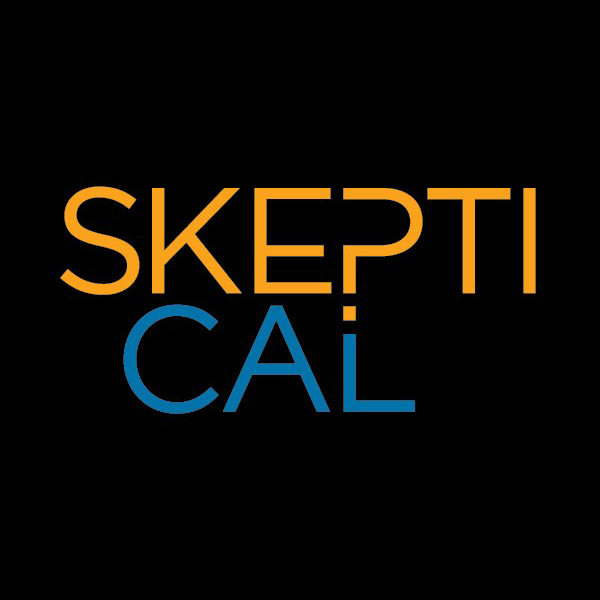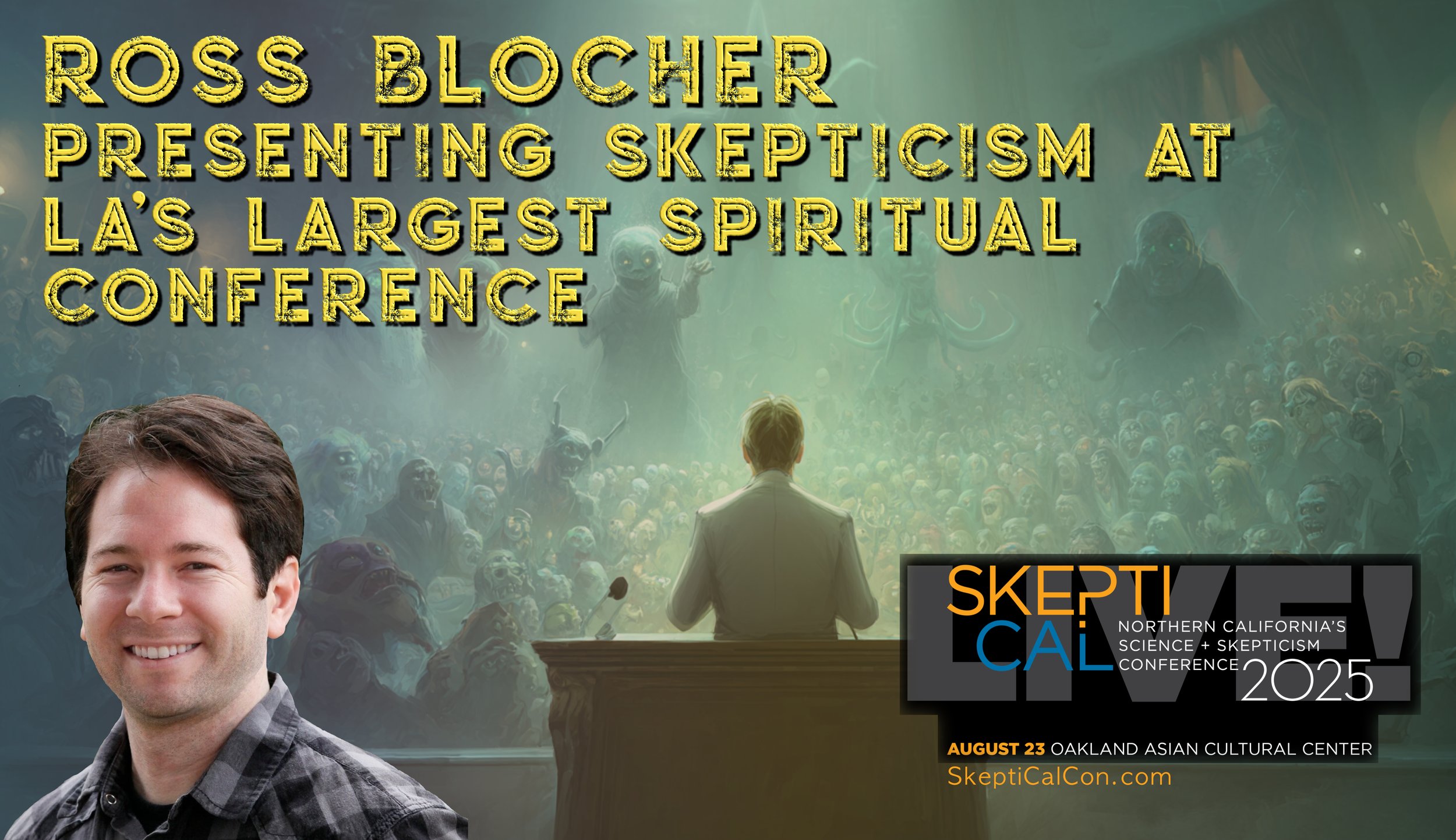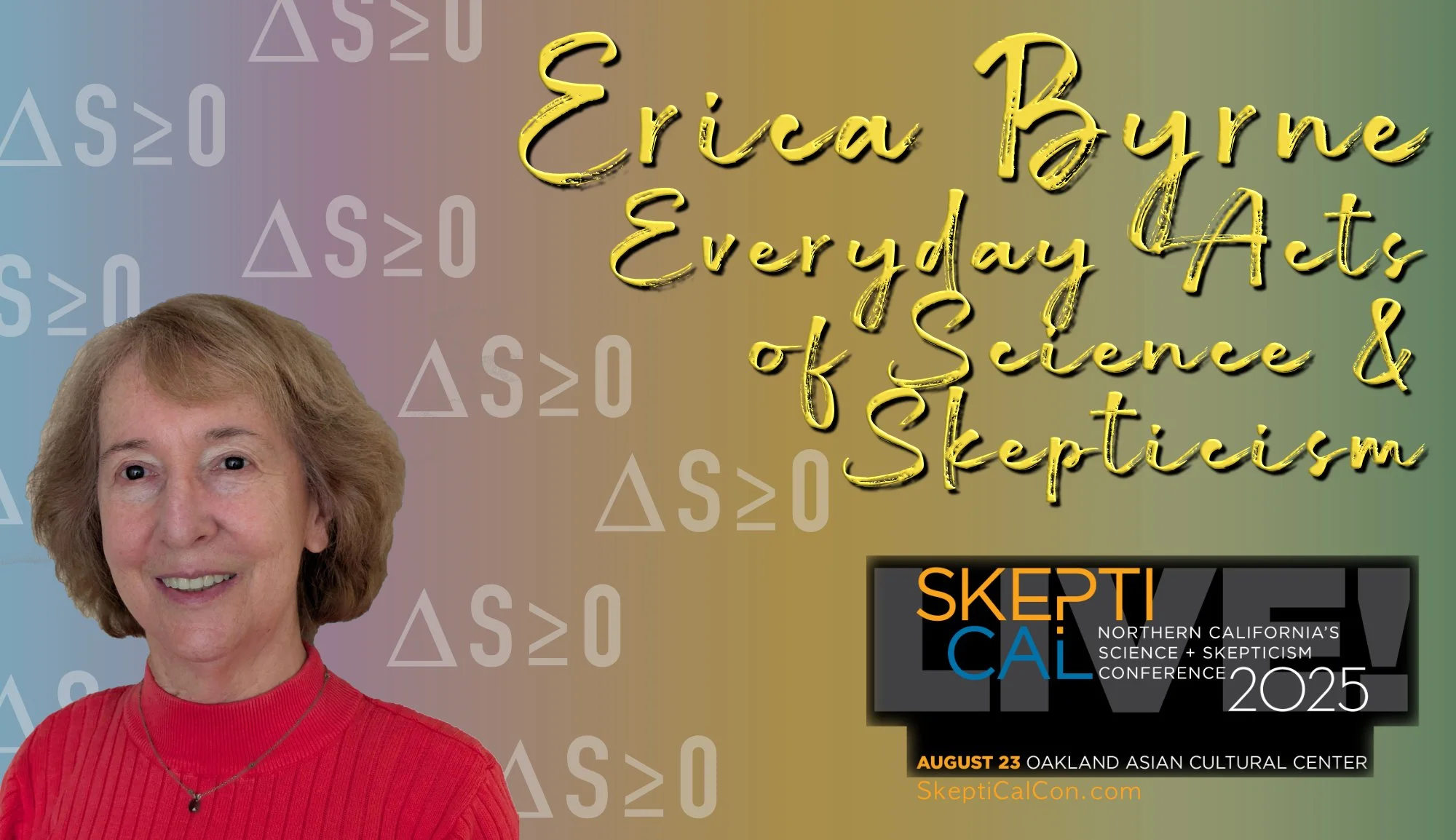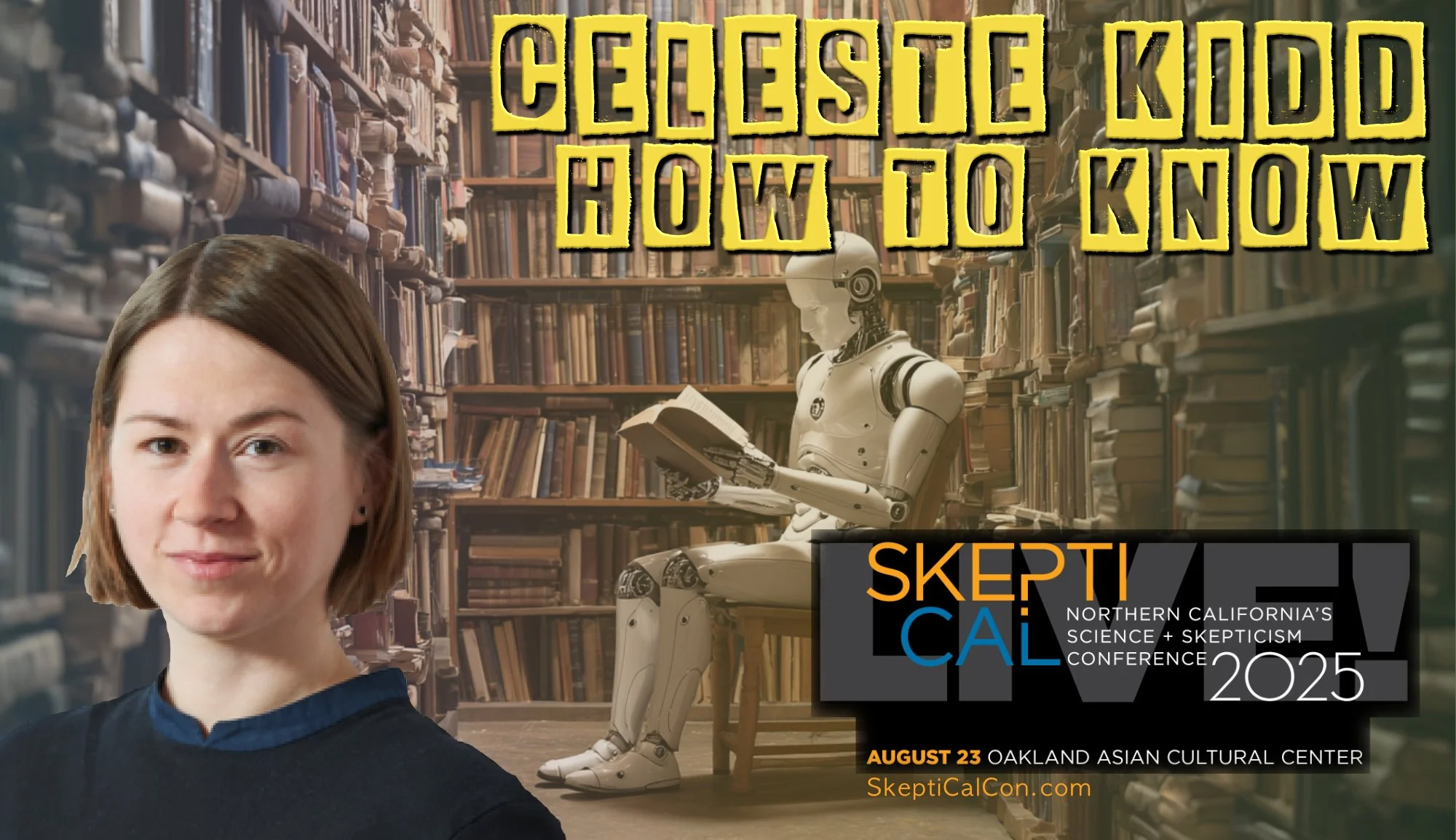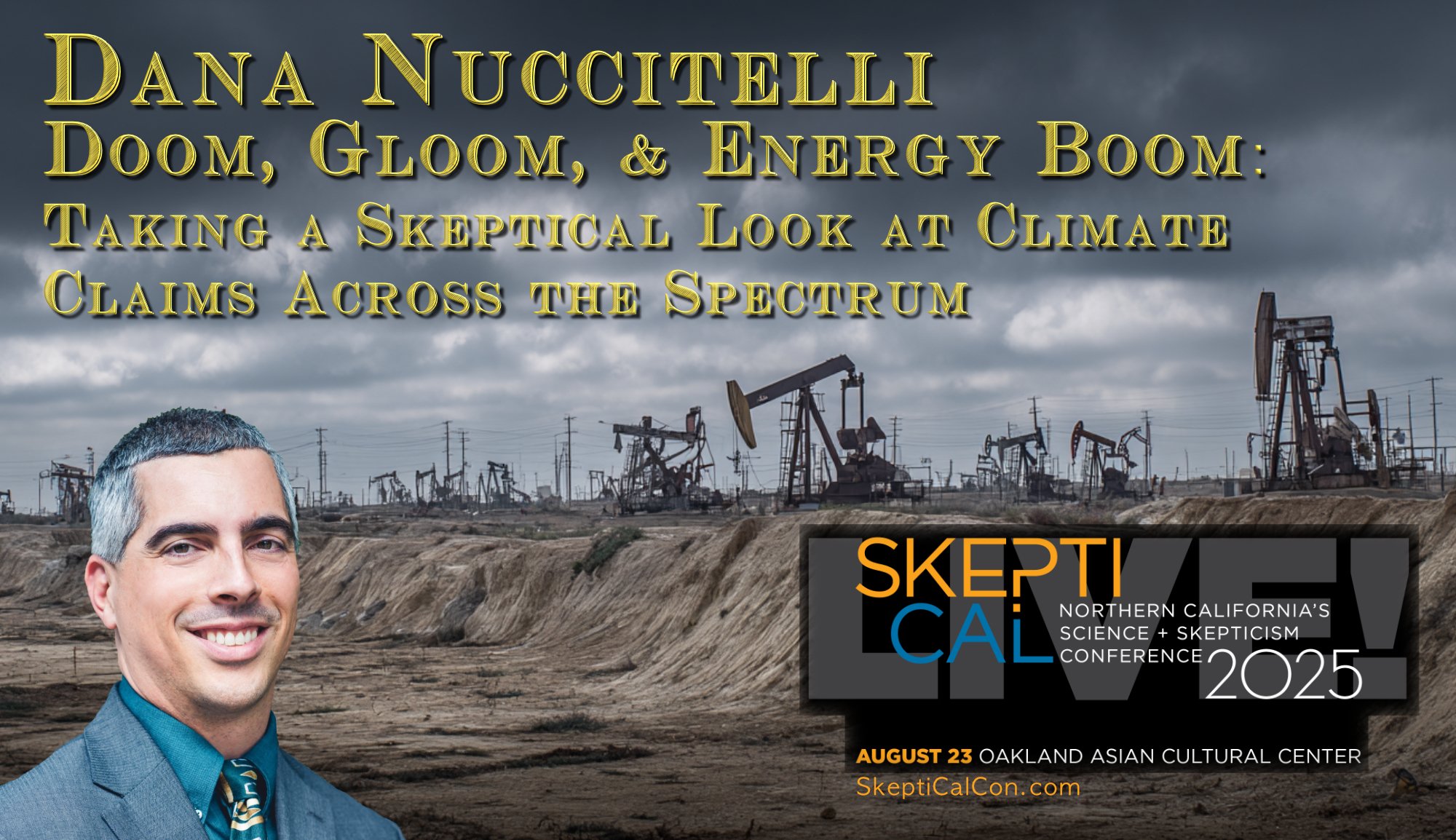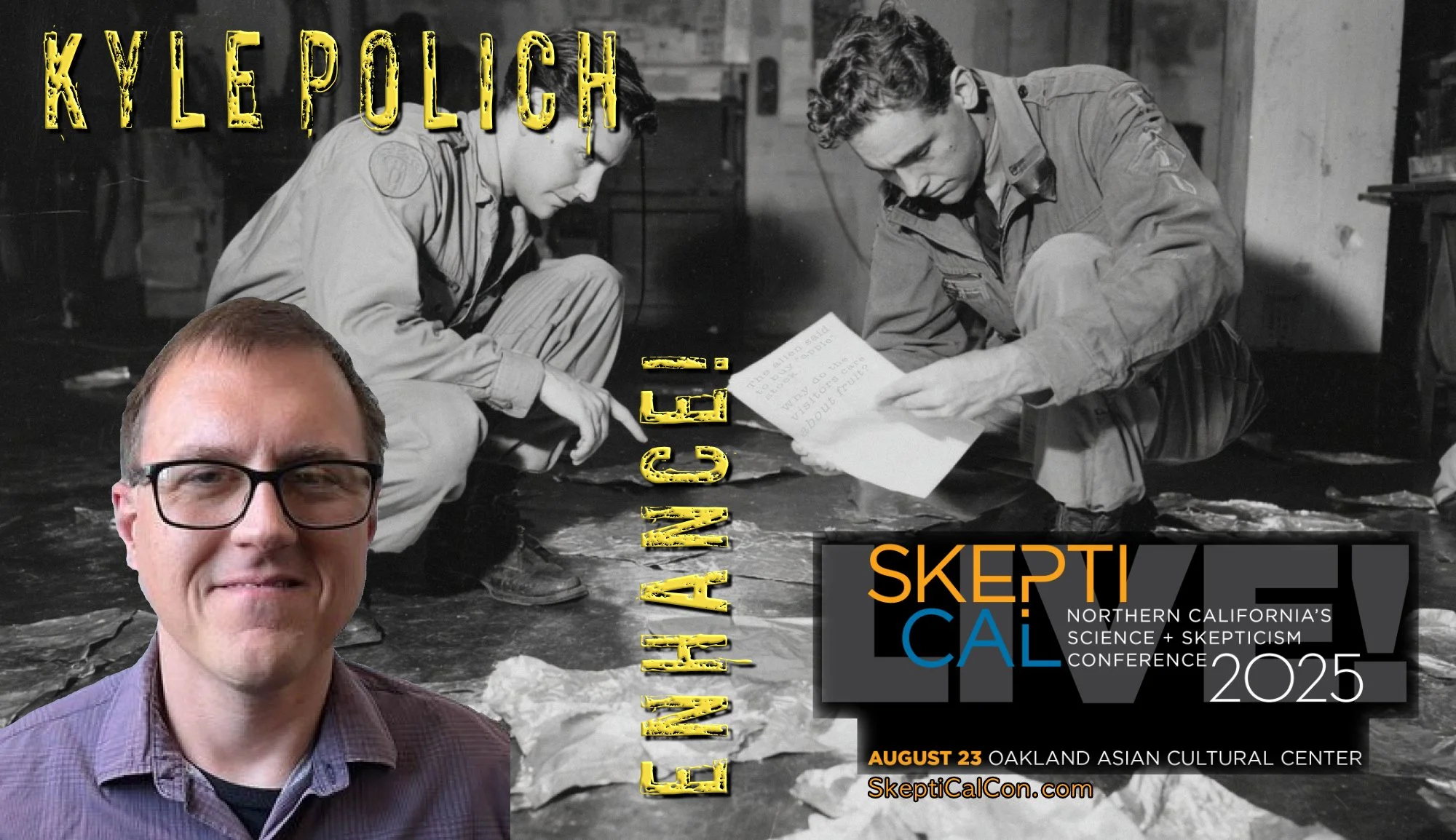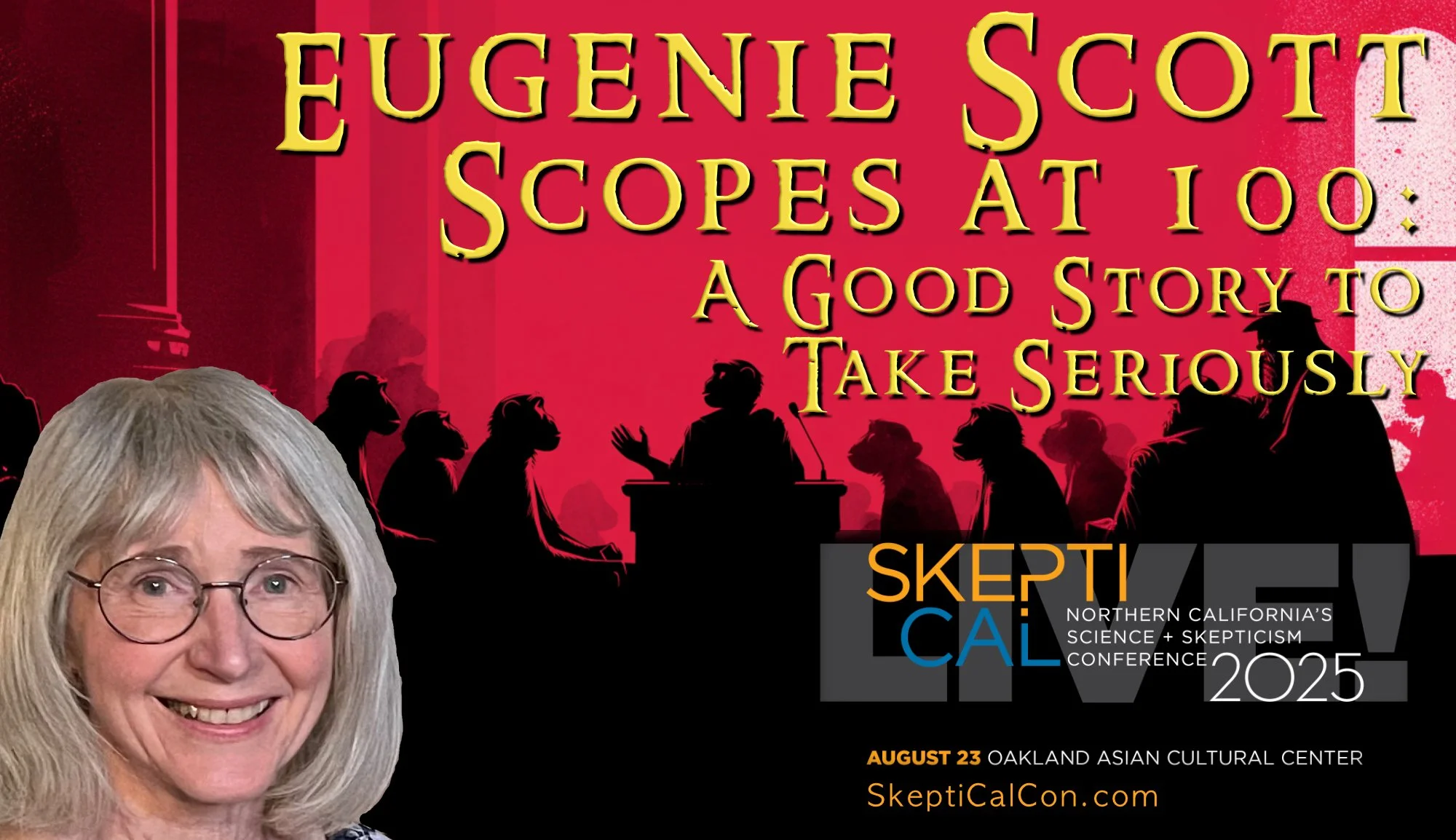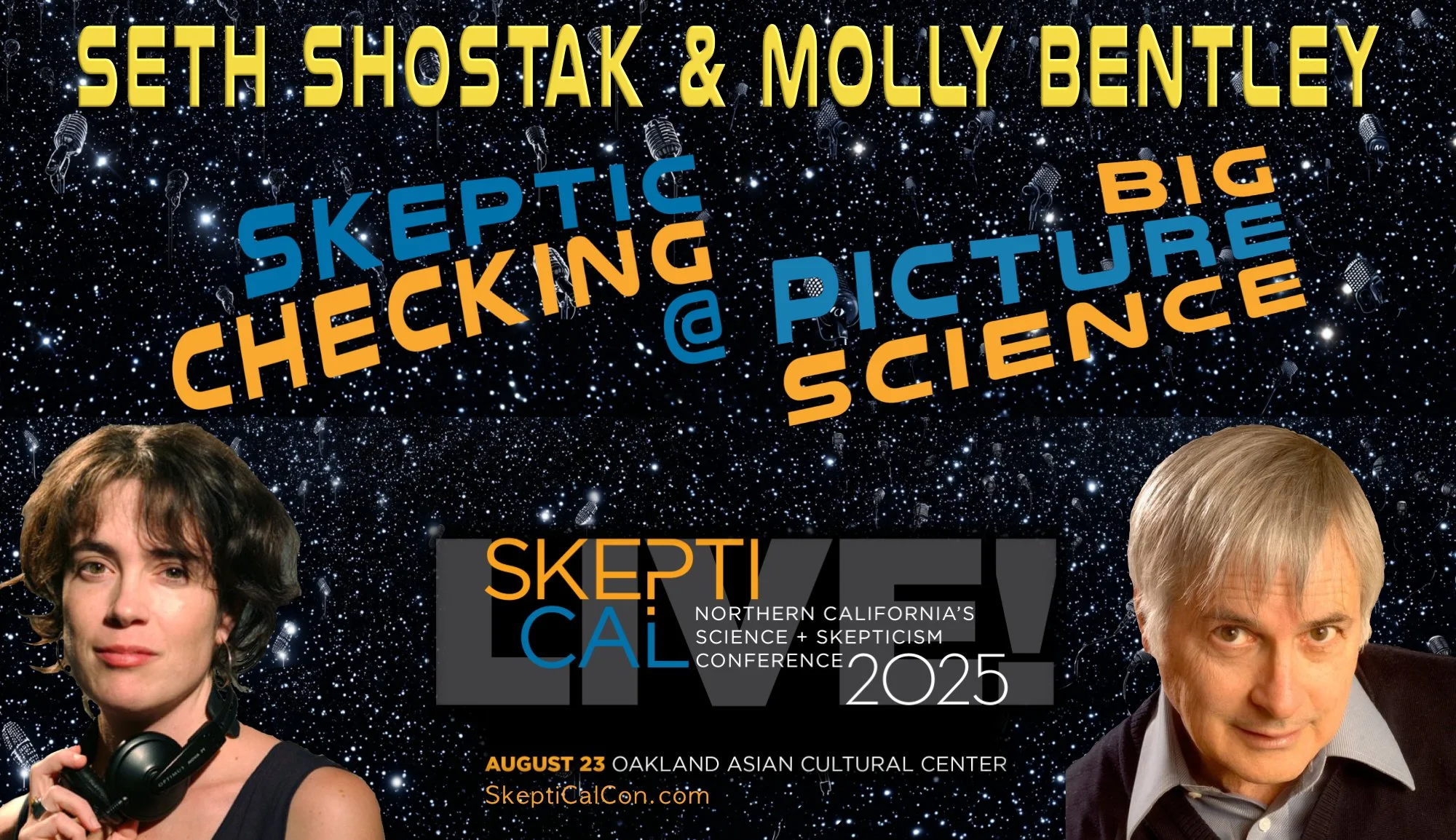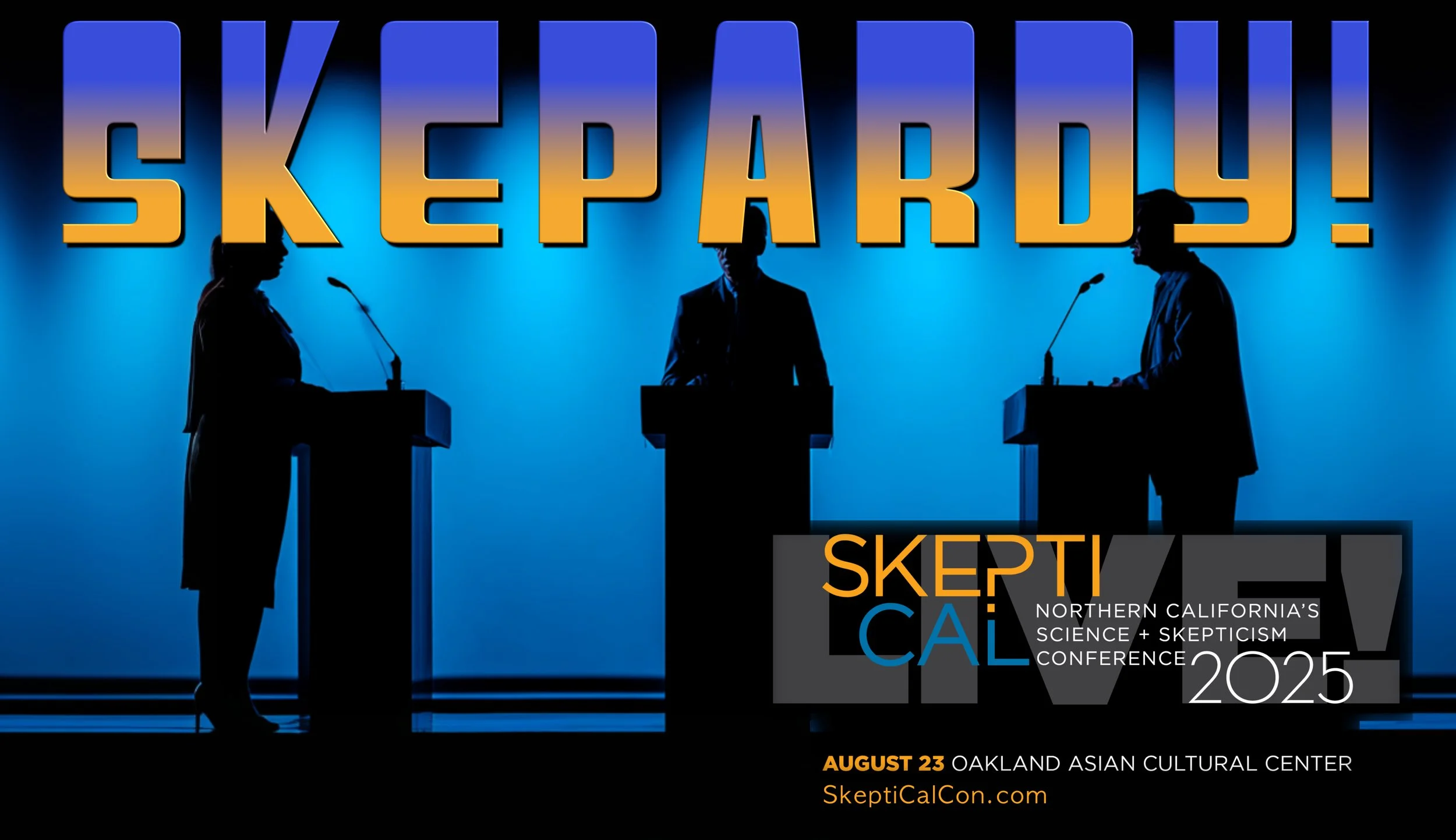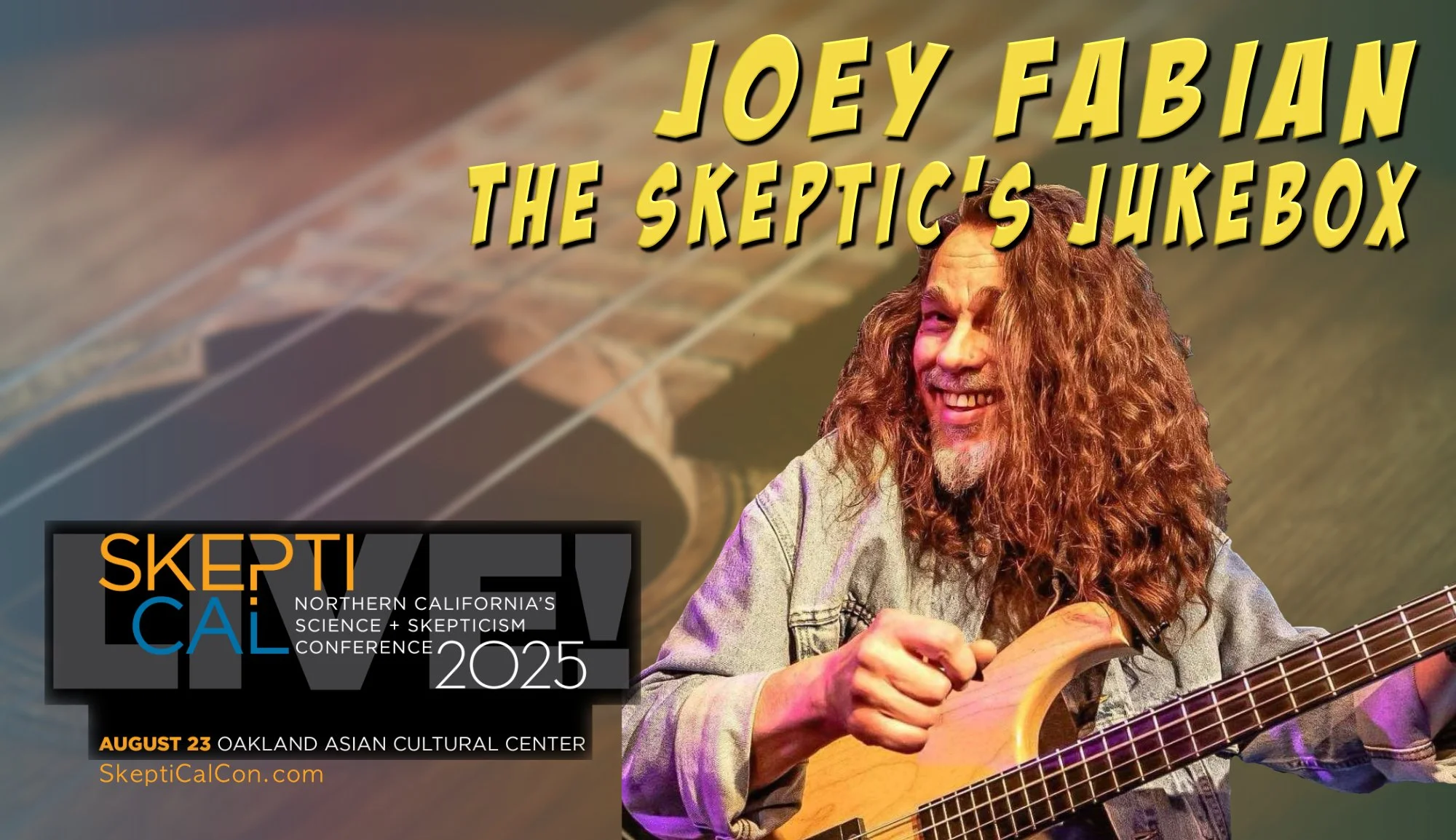2025 SkeptiCal Conference Speakers
Topics & Speakers
Ross Blocher - Presenting Skepticism at LA's Largest Spiritual Conference
Ross was born into a family of evangelical Christians and spent a good amount of time in churches of various denominations, singing in choirs, serving as an acolyte, and memorizing lots of scripture. Meanwhile, he busied himself reading books about ghosts, vampires, aliens and chupacabras. In college, while serving as president of a Bible study group, he started attending skeptical lectures and reading science books, coming to the conclusion that he'd been wrong about reality his whole life. While the beliefs went away, his interest in them didn't, and Ross has spent the time since trying to find out why people believe what they do and participating in the Independent Investigations Group, which investigates claims of the paranormal from a scientific viewpoint.
Ross Blocher is an accomplished animation professional and has worked on award-winning films including The Princess and the Frog and The Simpsons Movie. You can learn more about Ross at http://rossblocher.com.
Erica Byrne - Everyday Acts of Science and Skepticism
Come share your ideas on everyday actions you (and we) can take to rebut misinformation and advance scientific thinking. Do you write letters to the editor? Do you talk to your legislators? Do you debunk pseudo-science on Facebook? Do you volunteer with a science group? Do you share Skeptical Science with global-warming deniers on Twitter? Can you explain to creationists why the Second Law of Thermodynamics does not make evolution impossible? Do you advocate for more science in elementary schools in your school district? Do you leave skeptical books in Little Libraries? Do you explain logical fallacies when you encounter one? We can take small actions every day to advance the cause of scientific skepticism.
Erica Byrne served for many years on the Board of Rocky Mountain Skeptics in Colorado, participating in task forces to expose and rebut pseudo-science and scammers. A chemical engineer by training, she spent many hours rebutting the false creationist claim that the Second Law of Thermodynamics somehow makes evolution impossible. (It doesn’t.) She is currently consulting in the use of heat-recovery ventilators to reduce heating costs while improving indoor air quality.
Celeste Kidd - How to Know
This talk will discuss the UC Berkeley Kidd Lab’s research about how people (and some non-human animals) come to know what they know about the world. The world is a sea of information too vast for anyone to acquire entirely. How then do people navigate the information overload, and how do their decisions shape their knowledge and beliefs? Celeste will discuss recent empirical work about the core cognitive systems that people use to guide their learning about the world—including attention, curiosity, and metacognition (thinking about thinking). She will explore the evidence that supports how people play an active role in their own learning, starting in infancy and continuing through adulthood, and why we are curious about some things but not others, and how our past experiences and existing knowledge shape our future interests. Why do people sometimes hold beliefs that are inconsistent with evidence available in the world? How can we leverage our knowledge of human curiosity and learning to design systems that better support access to truth and reality?
The talk will underscore the importance of uncertainty in guiding our learning and collaborative knowledge building. We will be taking a comparative approach in outlining the types of cognitive representations of uncertainty shared among biological intelligence, but lacking in artificial ones, to explain how current generative AI models cannot be trusted to disseminate information to people without problems. Also discussed will be several core tenets of human psychology that can help build a bridge of understanding about what is at stake when discussing regulation and policy options to prevent widespread adoption of these AI technologies from permanently distorting human beliefs in problematic ways.
Dr. Celeste Kidd is a cognitive psychologist and AI ethicist at UC Berkeley studying ethical AI, and human belief formation, learning, and curiosity. Her research challenging the well-known “marshmallow test” of young children’s ability to defer gratification suggests that the earlier conclusions focusing on self-control were incomplete, and that rational decision-making is involved – even at the toddler stage. She has also published on how beliefs about the exaggerated capabilities of generative AI can lead to the risk of the transmission of false information and negative stereotypes.
Dana Nuccitelli - Doom, Gloom, and Energy Boom
Climate change is a difficult and polarizing topic. Some claim that we're already doomed to a climate catastrophe, while others argue that climate concerns are overblown and we need to focus on expanding fossil fuel production in a bid for "energy dominance." Dana will investigate these claims and make the case that while it poses an immense challenge, with the help of clean technologies, addressing the climate crisis while meeting our energy needs is entirely possible.
Dana Nuccitelli is an environmental scientist with a bachelor's degree in astrophysics from UC Berkeley and a master's degree in physics from UC Davis. He is the Research Manager for the nonprofit climate advocacy group Citizens' Climate Lobby and a climate journalist who has written for Skeptical Science since 2010, for The Guardian from 2013 to 2018, and for Yale Climate Connections since 2018. Dana has also published 10 peer-reviewed climate papers, most notably on the 97% expert consensus among climate scientists that humans are primarily responsible for the observed global warming since 1950.
Kyle Polich - ENHANCE!
From classic crime dramas to futuristic thrillers, we've all seen the trope: a blurry image, a tech wizard, and the mythical "enhance" button that reveals a perfect clear image. But in the real world, where do the boundaries lie between technical feasibility and science fiction? This talk explores the theoretical foundations of AI and algorithmic methods for image enhancement, their potential, and their limits. At the center of the talk will be a historical document related to the Roswell incident known as the "Ramey Memo".
Kyle Polich is the host of the Data Skeptic podcast, a weekly interview program exploring topics related to data science and AI. He runs a boutique consulting group focused on delivery of cloud scale machine learning solutions. He's lived here and there and is rarely beaten in Dr. Mario.
Eugenie Scott - Scopes at 100; a Good Story to Take Seriously
2025 marks the 100th anniversary of the “Trial of the Century”: Tennessee vs John T. Scopes, the first legal sally against the teaching of evolution in the US. It’s a great story – but widely misunderstood. Unlike the reaction to the fictional play and movie “Inherit the Wind”, the reaction to Scopes was not an unmitigated victory of evolution over the forces of obscurantism. The full story is much more complex and interesting, involving science, religion, law, education, politics, celebrities, modern communications, and the politicization of science. But the problem of antievolutionism, alas, did not end 100 years ago and in fact, given recent Supreme Court decisions, may well be back with a vengeance.
Dr. Eugenie C. Scott directed the National Center for Science Education, Inc., which works to improve the teaching of science as a way of knowing, the teaching of evolution, and the teaching of climate change. The author of Evolution vs Creationism: An Introduction and co-editor with Glenn Branch of Not in Our Classrooms: Why Intelligent Design is Wrong for our Schools, she is an expert on the creationism/evolution controversy. Scott is the recipient of numerous awards from scientists, educators, and skeptics, including the National Academy of Sciences Public Welfare Medal, and has been awarded ten honorary degrees. Currently she hosts the Bay Area Skeptics “SkepTalk” monthly speaker series. Asteroid 249540 Eugeniescott was named for her in 2014. She assures us it is not aimed at Earth.
Seth and Molly - Skeptic Checking @ Big Picture Science
A workshop with Big Picture Science co-hosts, Molly Bentley and Seth Shostak. Join the hosts of this well-known science podcast and enjoy their tour of its Skeptic Check episodes, taking a critical look at extraordinary science claims and pseudoscience. What’s it like hosting a science podcast? Bring your questions and comments and meet the co-hosts!
Molly Bentley oversees the production of Big Picture Science. She worked as a science journalist for the BBC and as a producer of NPR’s national radio magazine, To the Best of Our Knowledge. She has taught radio writing and podcast production for a decade at the prestigious UC Santa Cruz Science Writing Program.
Seth Shostak is a Senior Astronomer at the SETI Institute, with degrees in physics and astronomy from Princeton University and Caltech. He has a long history of research in radio astronomy and in the Search for Extraterrestrial Intelligence, SETI. Seth has published over 500 science and technology articles and co-hosts the weekly radio show "Big Picture Science." He has authored four books. He is a frequent guest and commentator on radio and television. His TV appearances include Larry King Live, Colbert Report, Nightline, and countless Discovery, History Channel, and National Geographic Channel programs.
Jim Underdown - Four Superpowers
For the past 25 years, the Center for Inquiry Investigations Group has tested more people claiming to possess paranormal powers than anyone in the world, and their $500,000 Paranormal Challenge is the largest active prize of its kind anywhere. In this talk/workshop, CFIIG founder Jim Underdown will outline four tests that his group often conducts, and that any science-based skeptic can administer to any claimant. You will walk out of this presentation with the basic tools to end any bar argument about telekinesis, dowsing, telepathy, and predicting the future.
James Underdown has been the executive director for the Center for Inquiry West in Los Angeles since 1999, and is the chair and founder of the CFI Investigations Group. He's written for Skeptical Inquirer and Free Inquiry magazines, and has appeared on Penn & Teller's Bullshit, The Dr. Phil Show, and in many other media. Jim hosts the web series SkeptiLab: The Bunk Stops Here!, and CFI's Point of Inquiry podcast. In 1980, he wrestled a bear and lost.
Entertainment
Host: Bill Patterson
Bill Patterson - Skepardy!
Skepardy! is our skeptically-themed version of the popular game show “Jeopardy!”.
We are proud to have Bill Patterson back for yet more skeptically themed game show segment of our event. Bill has been quizzing clever people for years, and for this event we'll have Kyle Polich and Molly Bentley as contestants, and questions from your favorite skeptics, as well.
Bill Patterson was a high school physics teacher for ten years, a Peace Corps volunteer, and a youth agency executive. He currently is a radiation therapist living in Sonoma County, California. He loves all things rational, and is a board member of Bay Area Skeptics.
Joey Fabian
Joey is a San Francisco Bay Area bassist/multi-instrumentalist/vocalist, composer, producer/engineer/editor and bass/guitar instructor. His performance credits include critically acclaimed fusion unit The Bartron Tyler Group, BMA nominated blues singer Paula Harris, pop star Alana Davis and guitar hero Will Ray of The Hellecasters. He currently tours with The Stinkfoot Orchestra; a 14 piece tribute to Frank Zappa featuring alums like Napoleon Murphy Brock.
In 2011 he began performing songs of a skeptical nature via “The Skeptic’s Jukebox”.
His studio “The Tomato Farm” is his base of operations for teaching bass and guitar, producing music and podcasts, editing audio, producing elements for a nationally syndicated radio show and more.
